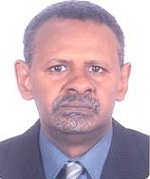
MMCTSE
MMCTSE
2017 International Conference on Mathematical Methods & Computational Techniques in Science & Engineering
University of Cambridge, UK, February
24-26, 2017

Abstract:
Geothermal heat pumps (GSHPs), or direct expansion (DX) ground source heat pumps, are a highly efficient renewable energy technology, which uses the earth, groundwater or surface water as a heat source when operating in heating mode or as a heat sink when operating in a cooling mode. It is receiving increasing interest because of its potential to reduce primary energy consumption and thus reduce emissions of the greenhouse gases (GHGs). The main concept of this technology is that it utilises the lower temperature of the ground (approximately <32°C), which remains relatively stable throughout the year, to provide space heating, cooling and domestic hot water inside the building area. The main goal of this study is to stimulate the uptake of the GSHPs. Recent attempts to stimulate alternative energy sources for heating and cooling of buildings has emphasised the utilisation of the ambient energy from ground source and other renewable energy sources. The purpose of this study, however, is to examine the means of reduction of energy consumption in buildings, identify GSHPs as an environmental friendly technology able to provide efficient utilisation of energy in the buildings sector, promote using GSHPs applications as an optimum means of heating and cooling, and to present typical applications and recent advances of the DX GSHPs. The study highlighted the potential energy saving that could be achieved through the use of ground energy sources. It also focuses on the optimisation and improvement of the operation conditions of the heat cycle and performance of the DX GSHP. It is concluded that the direct expansion of the GSHP, combined with the ground heat exchanger in foundation piles and the seasonal thermal energy storage from solar thermal collectors, is extendable to more comprehensive applications.
Brief Biography of the Speaker:
Abdeen Mustafa Omer (BSc, MSc, PhD) is an Associate Researcher
at Energy Research Institute (ERI). He obtained both his PhD degree
in the Built Environment and Master of Philosophy degree in
Renewable Energy Technologies from the University of Nottingham.
He is qualified Mechanical Engineer with a proven track record
within the water industry and renewable energy technologies. He has
been graduated from University of El Menoufia, Egypt, BSc in
Mechanical Engineering. His previous experience involved being a
member of the research team at the National Council for
Research/Energy Research Institute in Sudan and working director of
research and development for National Water Equipment
Manufacturing Co. Ltd., Sudan. He has been listed in the book
WHO'S WHO in the World 2005, 2006, 2007 and 2010. He has
published over 300 papers in peer-reviewed journals, 200 review
articles, 7 books and 150 chapters in books